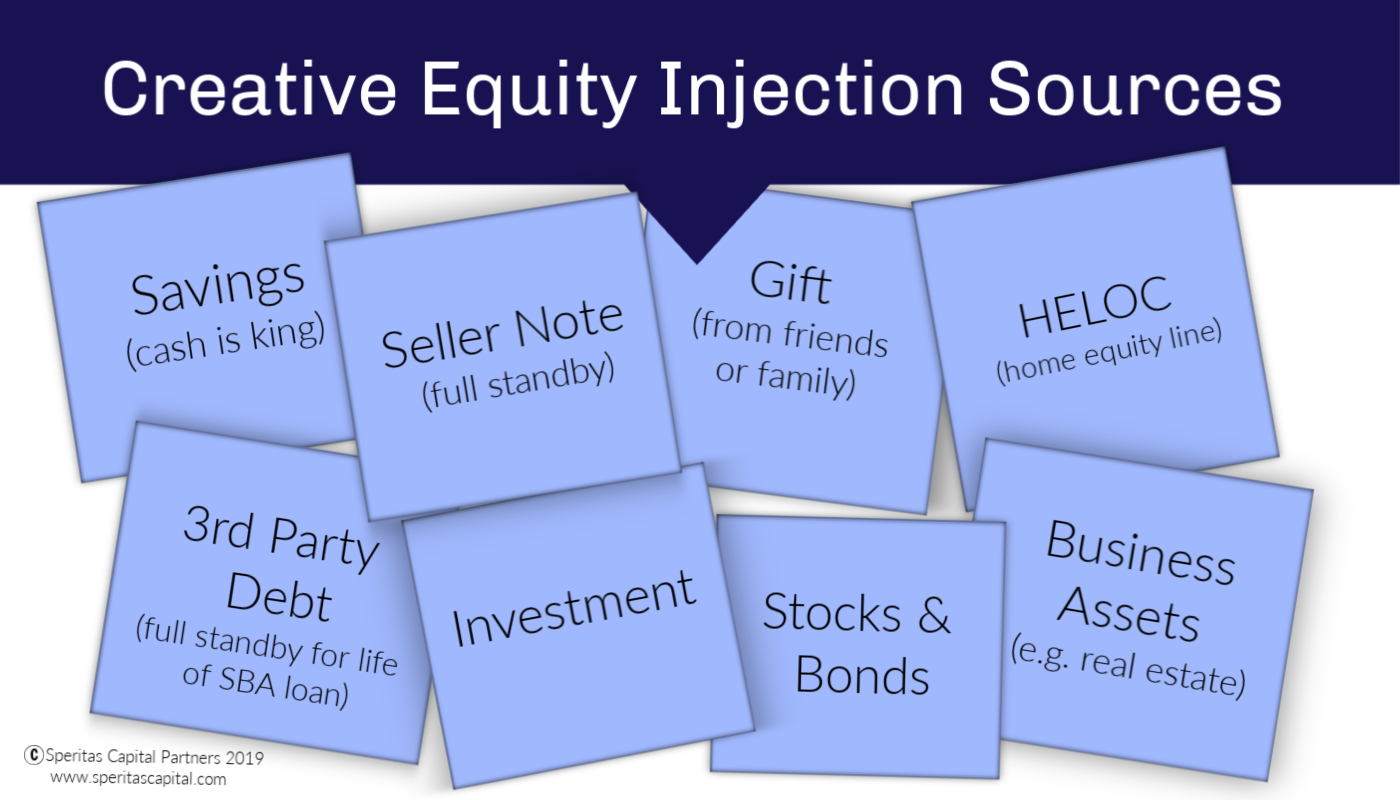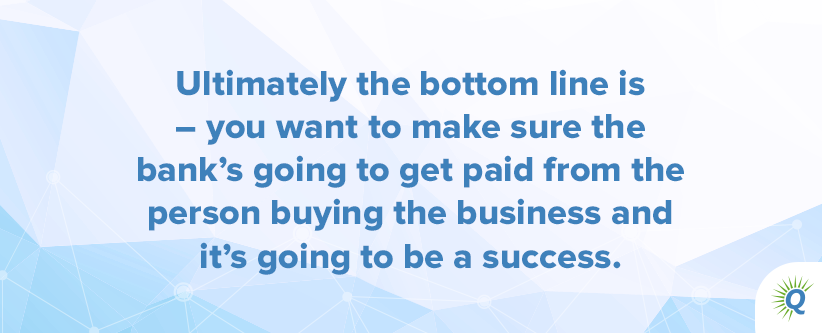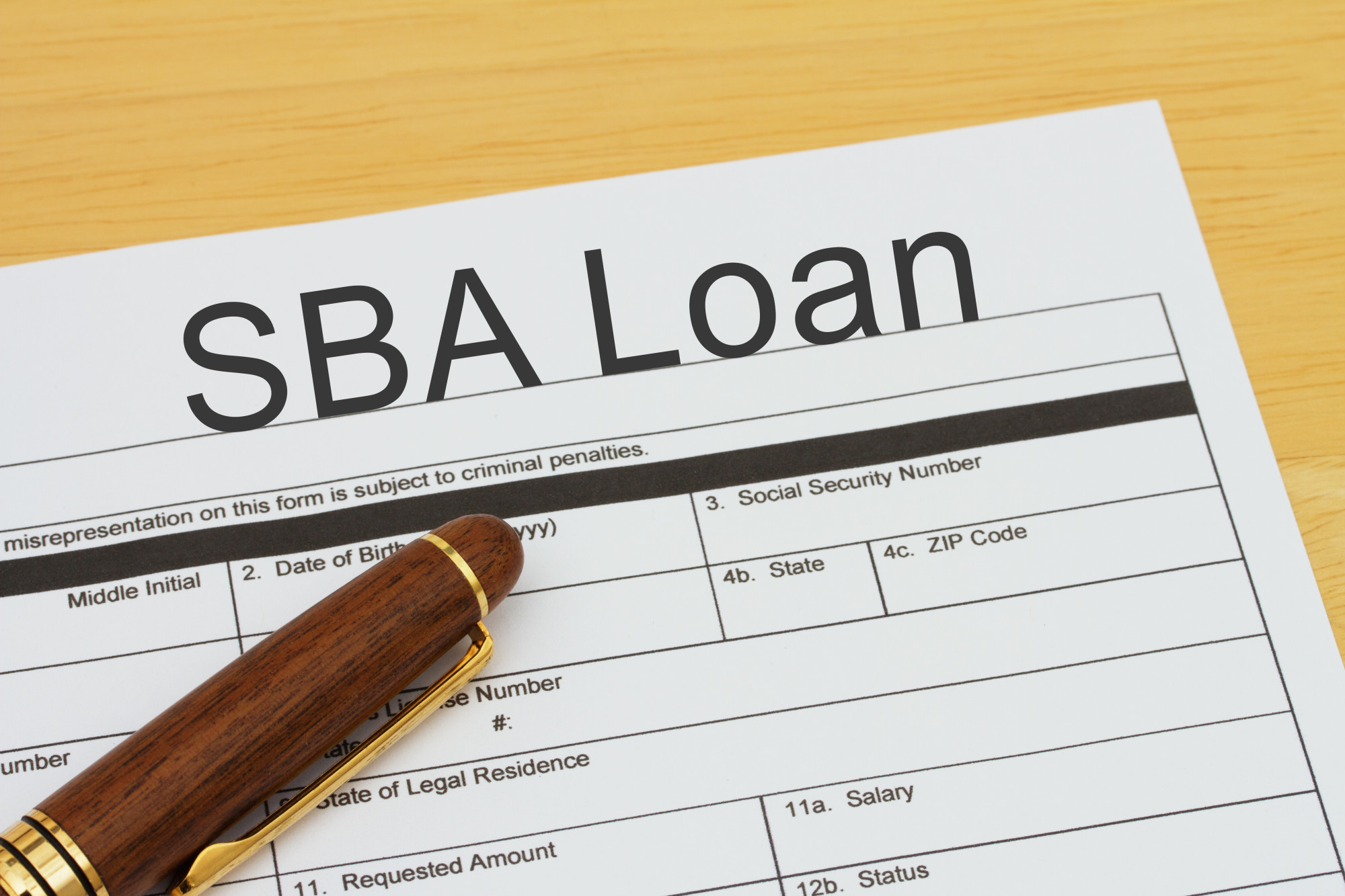Having access to SBA loans to help fund your business acquisition and build your wealth is one of the best financing opportunities available to you.
Prior to 2018, there wasn’t a financing option available to most buyers that allowed them to get access to profitable businesses at a fraction of the cost, with affordable rates to boot.
That being said, the SBA loan can be one of the most challenging aspects of your acquisition, from strict requirements to the paperwork involved, and everything in between.
There are two parts of the SBA loan qualification process.
The first one deals with the business itself – its cash flow, historical performance, age, and other factors. The second part deals with you as the buyer. If you come across a business that is already SBA pre-qualified, you just need to make sure you, as the buyer, are meeting certain criteria in order to obtain the SBA loan.
To make sure you’re setting yourself up for success in the pre-qualification process, let’s review five requirements you need to meet to successfully qualify for an SBA loan.
1. Minimum Down Payment
One of the beautiful things about an SBA loan is that you can leverage so little down to purchase a relatively larger asset. The minimum down payment for an SBA loan is 10% and in some cases up to 20%. The required down payment for a given deal depends on “cash flow of the business and the size of the acquisition,” according to Stephen Speer, Founder and CEO at e-Commerce Lending.
The down payment can come from a variety of places that are generally not another debt source:
- Cash on hand
- Savings
- 401K or IRA (usings the Rollovers as Business Start-Ups or ROBS)
- Home equity line of credit (HELOC)
- Gift from a friend or family member
On that last note, if you are gifted money, it must be accompanied by a formal gift letter.
Finally, the SBA is going to require the lender to document the source of the down payment going back for two full billing cycles, so as a buyer, you’ll want to be able to show the lender where the down payment has been, ideally in your acquiring entity’s bank account.
2. Post-Close Liquidity
The SBA, and the lender for that matter, both want to ensure that you and the business are fully capable of repaying the loan, so there is also a requirement for buyers to have a certain amount of money available even after paying the down payment. We call this post-close liquidity.
The reason for this requirement is that lenders want to make sure you, as the buyer, have a reserve or a rainy day fund to fall back on, in the event you run into any cash flow issues when running your new business.
How Much Should I Save for Post-Close Liquidity? It Depends.
For SBA loans, the post-close liquidity requirement is going to vary from 4-8% of the loan amount, and, as Speer mentions, where that percentage lands depends on “industry and how capital-heavy it is to run it.” For example, a manufacturing business, one with high inventory, or one with high accounts receivable with 60-90 day terms will likely require 8% or more for post-close liquidity; however, the post-close liquidity requirement may drop to 4-5% for a service business with low to minimal inventory.
The down payment sources above will qualify for post-close liquidity as well. If you have cash you can easily access from investments, those will also work. You just can’t use debt sources or money that is illiquid, such as restricted stock.
Oftentimes, when buyers start to do initial financial calculations to see what they can afford, they figure as long as they have 10% of the purchase price of a business, they can afford the business. Many buyers fail to take into account the requirement to have additional money leftover to prove to the lender they can continue to repay the loan, even in potential times of distress.
3. Relevant Professional Experience
One of the ways lenders mitigate their risk in qualifying you for an SBA loan is by making sure your professional experience is aligned with what you’re embarking on as a new business owner. When reviewing your background, they will look for one of the following:
- Track record in running a successful small business or an experienced partner
- Experience successfully implementing the strategies outlined in the business plan
- Having a background in the same industry especially relevant for larger deals
- Managerial experience including managing employees, payroll, P&Ls, and more
You may be able to showcase your relevant experience with a resume, and there’s an extremely high likelihood you’ll be asked to provide a business plan that explains what your goals are with the business and how you intend to reach them.
Fortunately, with this requirement, it is a little less black and white. When it comes to down payment and post-close liquidity requirements, you either can prove you have the cash or you can’t. However, to show you have the professional experience required to buy a particular business, you can craft a compelling narrative to help the lender connect the dots between your experience and the business you’re getting ready to purchase, so don’t let the list above discourage you completely.
As a side note, when evaluating businesses, there are specific qualities of a business listing that can help make a stronger case for SBA pre-approval. Here are some things to keep an eye out for:
- Key employees will stay on after close
- Seller agrees to stay on for a period of time to assist in the transition no more than 12 months
- Vital relationships with suppliers and customers will remain intact
4. Personal Guarantee
One of the most common questions we get from Acquisition Lab members is, “Is a personal guarantee required?”. For an SBA loan, the answer is yes.
A personal guarantee is a legal promise that if your business is unable to repay its debt, the bank or lender can come to you personally to repay the balance. This includes having your assets available for repossession. For lenders, requiring a personal guarantee provides them with an extra level of protection.
What type of assets?
- Personal bank accounts
- Real estate assets
- Vehicles
- Any other liquid assets
A personal guarantee shouldn’t be something you worry about if you’re looking to buy a business, and here are three reasons why:
- SBA pre-qualified businesses have been vetted for their cash flow and strong historical performance.
- As the new owner, no one is more invested in the business’s success than you.
- The historical default rate for SBA loans to buy businesses has been consistently under 2%.
Even though defaulting on a loan is a rare occurrence, signing a personal guarantee is an act of faith on your behalf, when you don’t have other money or inventory to help collateralize the loan.
If you’re considering a deal with investors, it’s important to note that SBA lenders will ask for a personal guarantee from anyone purchasing the business that will have 20% or more equity.
5. Personal Credit and Background
With lowered risk, affordable rates, small down payments, and longer repayment terms, there are huge upsides to utilizing SBA lending if you can qualify for it. In addition to the requirements above, you’ll want to make sure you meet the following:
- Credit score of at least 690 and overall good credit history
- No bankruptcies, foreclosures, or tax liens in the last three years
- Clean criminal history or ability to explain anything on your record
- No current federal debt
If you have any issues meeting these requirements, be honest with your lender from the start. Addressing any challenges openly and early will give you and the lender the chance to properly handle them.
For example, not all bankruptcies are the same and many can occur because of life circumstances out of our control, such as divorce or unforeseen medical bills. Again, the best approach in the application process is to be transparent and cooperative with the lender to resolve any hurdles that come up.
That’s it. Those are the five personal requirements you’ll need to meet to qualify for an SBA loan.
If you can obtain an SBA loan, I believe it is the best way to finance your acquisition.
Make sure you take time early on in the search process to meet these requirements, so you can obtain an SBA pre-qualification letter that will help prove your funding source to any brokers you work with.
Ready to acquire a business in the next 12 months? The Acquisition Lab is your first stop. Reach out to us today and get on the fast track to becoming an acquisition entrepreneur.




